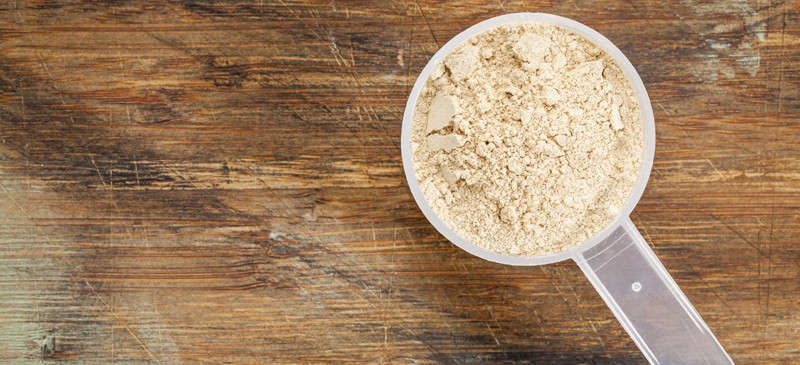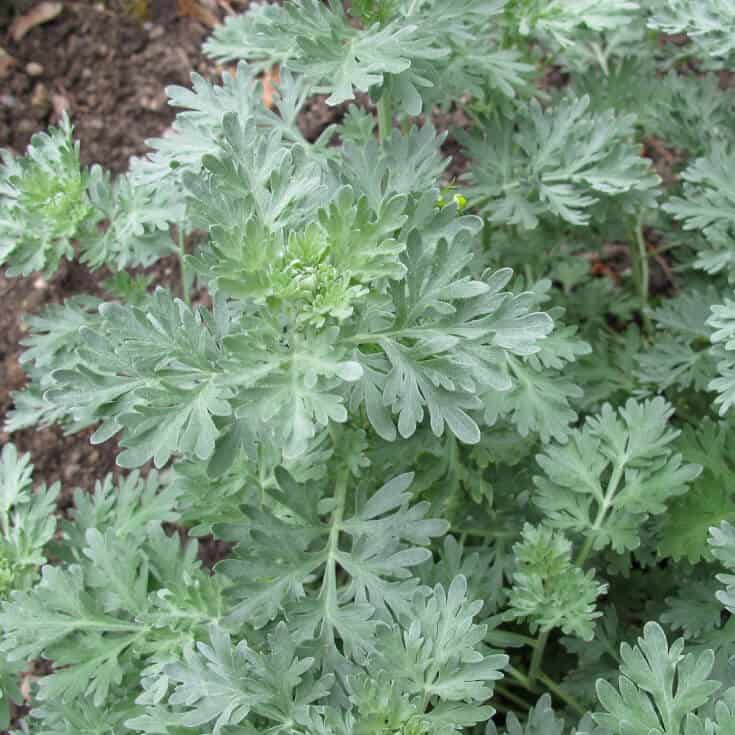This Dr. Axe content is medically reviewed or fact checked to ensure factually accurate information.
With strict editorial sourcing guidelines, we only link to academic research institutions, reputable media sites and, when research is available, medically peer-reviewed studies. Note that the numbers in parentheses (1, 2, etc.) are clickable links to these studies.
The information in our articles is NOT intended to replace a one-on-one relationship with a qualified health care professional and is not intended as medical advice.
This article is based on scientific evidence, written by experts and fact checked by our trained editorial staff. Note that the numbers in parentheses (1, 2, etc.) are clickable links to medically peer-reviewed studies.
Our team includes licensed nutritionists and dietitians, certified health education specialists, as well as certified strength and conditioning specialists, personal trainers and corrective exercise specialists. Our team aims to be not only thorough with its research, but also objective and unbiased.
The information in our articles is NOT intended to replace a one-on-one relationship with a qualified health care professional and is not intended as medical advice.
Anti-Aging Supplements: Do They Really Work? Top Supplements to Slow Signs of Aging
March 23, 2024

Since the beginning of time, people have been searching for new ways to restore youth and slow signs of aging. With the hunt still on for the mythical Fountain of Youth, pills, potions, serums and other anti-aging supplements have started cropping up all over the market promising to turn back time and keep you feeling young.
Unfortunately, many come with hefty price tags, and with so many choices out there, it can be difficult to determine which ones are actually worth the investment.
So if you’re wondering what vitamins to take to look younger, what supplements help with wrinkles and what are the best vitamins to take for aging skin, look no further. Here’s everything you need to know to help maintain your youthful glow and stay feeling younger for longer by making just a few simple additions to your daily routine with anti-aging supplements, anti-aging oils and anti-aging foods.
What Are Anti-Aging Supplements?
When you think of “anti-aging supplements,” you may initially think of vitamins, minerals, products or creams that help fight the visible signs of aging by smoothing the lines on your face, amping up energy levels, and keeping skin supple and smooth. However, the benefits of anti-aging supplements extend way beyond the surface. They help slow certain signs of aging that may not even be visible to the naked eye.
Some of the potential benefits of anti-aging supplements may include:
- Reduced joint pain
- Decreased muscle loss
- Improved vision
- Increased skin elasticity
- Stronger bones
- Enhanced heart health
- Smoother skin
- Optimized exercise performance
- Improved immune function
- Increased energy levels
- Increased longevity
Best Anti-Aging Supplements
1. Collagen
As the most abundant protein, collagen can be found throughout the body in the bones, muscles, tendons and skin. Not only is it absolutely essential to maintaining overall health, but it’s also vital to preserving youth and slowing down the signs of aging.
According to one study published in the journal Skin Pharmacology and Physiology, oral supplementation with collagen helped increase skin elasticity and improve skin moisture in women after just four weeks. What’s more, other research shows that collagen can help relieve joint pain and reduce symptoms of osteoarthritis, a common degenerative joint disease that is often caused by wear and tear on the joints.
2. Vitamin C
Without a doubt, vitamin C is one of the top anti-aging vitamins available. Doubling as both a powerful antioxidant and essential water-soluble vitamin, vitamin C has been associated with a number of powerful effects on health.
First and foremost, vitamin C is necessary for the production of collagen, a crucial protein involved in the health of your joints, skin and muscles. One study published in the American Journal of Clinical Nutrition also reported that consuming a higher amount of vitamin C was associated with a decreased risk of wrinkles as well as improvements in the appearance of skin aging.
Plus, vitamin C may also have immune-boosting effects, which can be especially important as you get older and your immune system starts to slow down.
3. Protein from Bone Broth
Produced by simmering the bones and connective tissues of animals for a period of several days, protein from bone broth is jam-packed with collagen and an assortment of trace minerals, earning it a top slot as one of the best anti-aging supplements available.
Thanks to its rich content of collagen, bone broth may help minimize joint pain associated with aging or physical activity while also improving skin elasticity.
It’s also believed to reduce inflammation. This could have far-reaching benefits when it comes to the prevention of chronic disease and inflammatory conditions, such as rheumatoid arthritis, lupus and inflammatory bowel disease.
4. Omega-3 Fatty Acids
Whether you’re getting them from fish oil, krill oil, algal oil or another omega-based supplement, getting your daily dose of omega-3 fatty acids is crucial when it comes to health and aging. Perhaps most well-known for their beneficial effects on heart health, omega-3 fatty acid supplements bring a wide variety of other anti-aging benefits to the table.
Studies show that getting enough omega-3 fatty acids in your diet could be linked to a lower risk of age-related macular degeneration, one of the leading causes of vision loss in older adults. Research also suggests that a higher intake of omega-3 fatty acids could be associated with a reduced risk of cognitive decline and dementia.
Additionally, omega-3 fatty acids may also reduce joint pain, boost bone strength and enhance sleep quality, all of which are important factors when it comes to healthy aging.
5. Whey Protein
Although most people use whey protein as a post-workout snack to aid in muscle recovery and growth, it can also be incredibly beneficial as a powerful anti-aging supplement. This is because as you get older, your muscle tissues start to slowly break down in a process called sarcopenia, which is a natural part of the aging process.
Whey protein is a complete, high-quality source of protein that is easily digestible. It can help maintain muscle mass and slow age-related muscle loss in older adults. Not only that, but whey protein can help manage blood pressure levels, decrease inflammation and regulate blood sugar levels as well.
6. Vitamin E
This fat-soluble vitamin acts as a powerful antioxidant. It helps fight free radicals and protect the cells against oxidative damage. Vitamin E can be especially beneficial when it comes to promoting eye health and preventing vision loss, a common issue that often occurs in older adults.
In one study, combining vitamin E with an assortment of other essential nutrients was effective at reducing the progression of age-related macular degeneration to help prevent symptoms like blurred vision and blindness. Some research also suggests that getting enough vitamin E could even aid in the prevention of age-related cataracts as well.
7. Vitamin A
If you’re wondering what is the best anti-aging vitamin, there’s no doubt that vitamin A should definitely make the list. In fact, vitamin A is involved in just about every aspect of health, from immune function to vision, reproductive health and beyond.
It’s also key to promoting healthy skin and hair. Why? It aids in the function of the sebaceous glands in the skin, which help produce oil to keep the hair and scalp moisturized and smooth.
When applied topically, vitamin A in the form of retinoids can also decrease fine lines and wrinkles, plus boost collagen production to keep skin glowing and soft. Plus, getting enough vitamin A in your daily routine may also protect against other age-related conditions, such as cataracts and macular degeneration.
8. Coenzyme Q10
Coenzyme Q10, also known as CoQ10, is a compound that is found in food and supplements. It is used to produce energy in the cells. Your body also creates CoQ10 naturally, but production tends to slowly decline as you start to get older.
Supplementing with CoQ10 is a simple way to take advantage of the anti-aging benefits that this compound has to offer. Studies show that topical CoQ10 can provide antioxidant protection to the skin and may help reduce wrinkle depth and decrease sun damage. It can also help fight fatigue and kick up exercise performance to really optimize your workout.
In addition to these eight anti-aging supplements, research shows the follow supplements also support healthy aging:
- probiotics
- multivitamin
- vitamin D
- B vitamins, such as vitamin B12
- vitamin K
- turmeric/curcumin
- green powders
- hyaluronic acid
- selenium
- zinc
- resveratrol
- green tea extract/EGCG
- ginkgo biloba
- ashwagandha
- NAD+
- astragalus
- calcium
- lutein
- saffron/cronica
- theanine
- rhodiola
- fisetin
- sulforaphane
Risks and Side Effects
Adding a few of the top anti-aging supplements into your routine can be an easy and effective way to slow the signs of aging and keep your body feeling its best for as long as possible. However, more is not always better when it comes to supplementation.
In fact, going overboard can actually come with some pretty detrimental effects on health.
Taking too much vitamin A or vitamin E, for example, can cause toxicity, while other supplements like fish oil can cause unpleasant side effects like indigestion, diarrhea and low blood pressure.
For best results, always follow the recommended dosage carefully, and decrease your dose if you experience any adverse side effects or symptoms. Alternatively, you can try adding some anti-aging foods to your diet instead, such as blueberries, salmon, nuts, turmeric or dark chocolate. Not only do these foods deliver the same set of nutrients and health-promoting properties, but they are also found in less concentrated amounts, meaning they’re less likely to cause adverse side effects.
As always, consult with your doctor before starting supplementation, especially if you have any underlying health conditions or currently take any medications to prevent interactions or adverse side effects.
Final Thoughts
- Anti-aging supplements are supplements that help slow the aging process. This can involve reducing joint pain, preventing muscle loss, improving vision, smoothing skin, enhancing heart health, improving immune function and more.
- Some of the best anti-aging supplements include collagen, bone broth protein, vitamin C, CoQ10, whey protein, vitamin E, omega-3 fatty acids and vitamin A.
- Keep in mind that it’s important to always stick to the recommended dosage to prevent unwanted side effects and maximize the potential benefits.
- Additionally, be sure to pair these anti-aging supplements with a well-balanced diet and a variety of anti-aging foods to get the most bang for your buck when it comes to your health.










